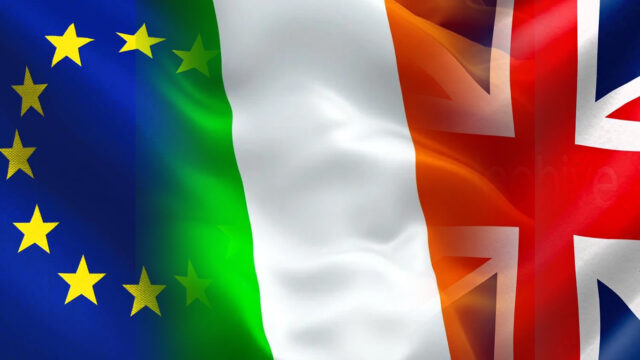As a major international event, the United Kingdom voted to leave European Union in 2016. Negotiations and discussions followed to strike deals to cover nuances of trade, work, travel, fishing, financial services and other living conditions. The final process concluded when the transition period ended and the final decision was made public on 31 January 2020. This decision opened the Pandora ’s Box due to pending decisions and moreso at the tensed border between the UK and Northern Ireland.
The source of the border conflict goes back to the 1960s when differences between two groups – the Nationalists and Unionists gave rise to tensions at the UK-Ireland border.1960s began to be referred to as the period of “Troubles” due to the violent tussles between the two clusters. At this time, the Irish Republican Army (IRA) carried out bombings in Britain and Northern Ireland. This stopped in 1990s and finally in 1998, an agreement was signed between the then British Prime Minister Tony Blair and the Irish Prime Minister Bertie Ahern. This agreement was called the Good Friday agreement that formed strands of administrative organs to address issues of demilitarisation and general living conditions and rights.
With the Brexit having finalised, the freedom to work and live between the UK and EU too ceased and a new “regulatory border” was in place. Unlike the earlier agreement, a new Northern Ireland Protocol came into force on 1 January 2021 that imposes mechanisms to check the cross border trade including documentation and standard verification. This was also done to avoid disruptions along the Irish border which has a history of violence and differences. However these checks caused clashes as the Unionists complained of unfair treatment as compared to the other citizen of the United Kingdom. There were discussions between representatives from both the countries to come to an agreement which was viable and beneficial to both and exemptions and waivers were considered.
A major development was when the European Union announced on 29 January 2021 to impose restrictions on international shipments of Covid vaccines due to the insufficient numbers in Europe. This was done under the Article 16 Emergency provision of the Northern Ireland protocol. It would have resulted in limits or ban on the export of the Covid 19 vaccines across the Republic of Ireland (member of EU) and Northern Ireland. However British Prime Minister Boris Johnson and Irish Prime Minister Michael Martin resolved the matter with quick communication with the EU Comission President Ursula von der Leyen. The decision was reversed but it led to distrust and insecurity among the traders.
The British Cabinet Minister and Michael Gove and European Commission Vice President Maros Sefcovic met on 3 February 2021 to discuss the future of the Protocol. Minister Gove suggested exemption and waiver for supermarkets , travel of pets and other exports for a grace period or even up to two years to instill trust among the cross community retailers. British Prime Minister Boris Johnson stated that he was willing to invoke the Article 16 of the Protocol to overcome the “barriers in the Irish Sea”.
A grace period will stabilise the situation, put a process in place and will also acclamatise people. However, with the historical baggage and personal differences of people living close to the border, a well balanced agreement is no low hanging fruit.









